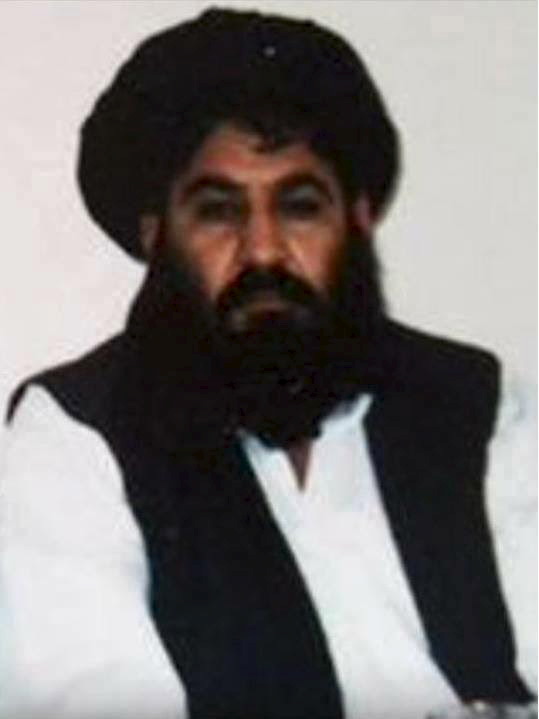By Jibran Ahmad and James Mackenzie
PESHAWAR, Pakistan/KABUL (Reuters) - If the first public comments from the Afghan Taliban's newly appointed leader are anything to go by, Akhtar Mohammad Mansour recognises how fractured the militant movement has become and that humility and consensus may be his best way forward.
Mansour, who was deputy to the late Taliban founder Mullah Mohammad Omar, is widely seen as close to neighbouring Pakistan's powerful military intelligence, which helped create the Taliban in the 1990s and has maintained links ever since.
That would suggest he was in favour of nascent peace talks with the Afghan government that Pakistan has strongly backed, and Mansour has endorsed negotiations previously.
Yet his first speech since being named leader last week was an appeal to Taliban commanders opposed to negotiating with President Ashraf Ghani's government in Kabul, which they see as a vassal of the West that must be overthrown.
"This is propaganda of the enemy," he said. "Jihad will continue till an Islamic Sharia system is enforced in the country."
Experts believe it would be premature to read too much into those comments.
"If he's playing to his own audience and trying to consolidate his position, it wouldn't make much sense to make announcements about seeking peace at the moment, as the peace talks issue is a make-or-break point within the Taliban," said Thomas Ruttig, co-director of the Afghanistan Analysts Network in Kabul.
With a touch of diplomacy, Mansour added: "We have to be patient and tolerant and bow our heads before other colleagues and then we will succeed. We should not impose our wishes on others."
DRUG TRAFFICKER, RECRUITER, PRISONER, WARRIOR
Born around 50 years ago in the southern Afghan region of Kandahar, Mansour studied in religious schools there and in northwestern Pakistan, interrupting his studies to fight after the 1979 Soviet invasion of Afghanistan, Taliban sources said.
He became close to Omar, the movement's late founder, being appointed aviation minister after the Taliban wrested control of Afghanistan from feuding warlords in 1996 and eventually rising to become his deputy.
Mansour's ties with Pakistan mean its intelligence service, the ISI, almost endorsed his recent appointment to succeed Omar, according to analysts.
"He would not have become the new head of the Taliban unless the ISI wanted him to be the head of the Taliban," said Bruce Riedel, a former senior official at the CIA and currently a senior fellow at the Brookings Institution.
That relationship with Pakistan has seen Mansour branded as a tool of the ISI by adversaries chafing at Islamabad's longstanding influence over the Taliban leadership.
Little is known of him personally.
Mansour has never given an interview to the press, and in 2010 media reported that negotiators in Kabul who had thought they were meeting him in secret peace talks had, in fact, been talking to a grocer impersonating the Taliban No. 2.
After being captured and imprisoned in Pakistan when the Taliban government was toppled in 2001, Mansour was repatriated and resumed his career in 2006, rising steadily through the group's ranks as other commanders were eliminated.
According to the United Nations Security Council, which put him on a list of Taliban officials targeted with sanctions, he mixed drug trafficking with other operations in the eastern provinces and was a top recruiter of anti-government fighters.
By 2010, he had joined the main leadership council and is widely considered to have been the effective head of the movement since Omar's death, which Afghanistan's intelligence agency says happened more than two years ago.
SOCIAL NETWORKING
Ruttig, who met Mansour in 2000 when he was serving as aviation minister in the Taliban government, said he had the impression of an intelligent man with a sharp mind who was ready to talk at much more length than some of his colleagues.
He helped oversee the opening of a Taliban office in the Qatari capital of Doha in 2013, underscoring perceptions that he was a pragmatist generally in favour of at least limited contact with the outside world.
The fact that he released his first public comments via Facebook (NASDAQ:FB) also suggests a leader more comfortable with modern methods of communication than the famously secretive Omar.
Confirmation of Omar's death last week cleared up some confusion over his fate, but also brought deep divisions within the Taliban out into the open.
On Tuesday, Taliban official Syed Mohammad Tayab Agha announced he was resigning as director of the Political Office in Doha, set up to enable the Taliban to negotiate peace, because he disagreed with the way the succession was handled.
As well as disharmony over the peace process, tensions also centre on rivalries between the Pashtuns of Mansour's southern region of Kandahar and those in eastern Afghanistan.
Small but increasing numbers of fighters are exchanging the white flag of the Taliban for the black insignia of the more brutal Islamic State, and the two groups have clashed.

That adds a new and unpredictable element to Afghanistan's insurgency, which, for all the infighting within the Taliban, has intensified since NATO troops withdrew at the end of last year.